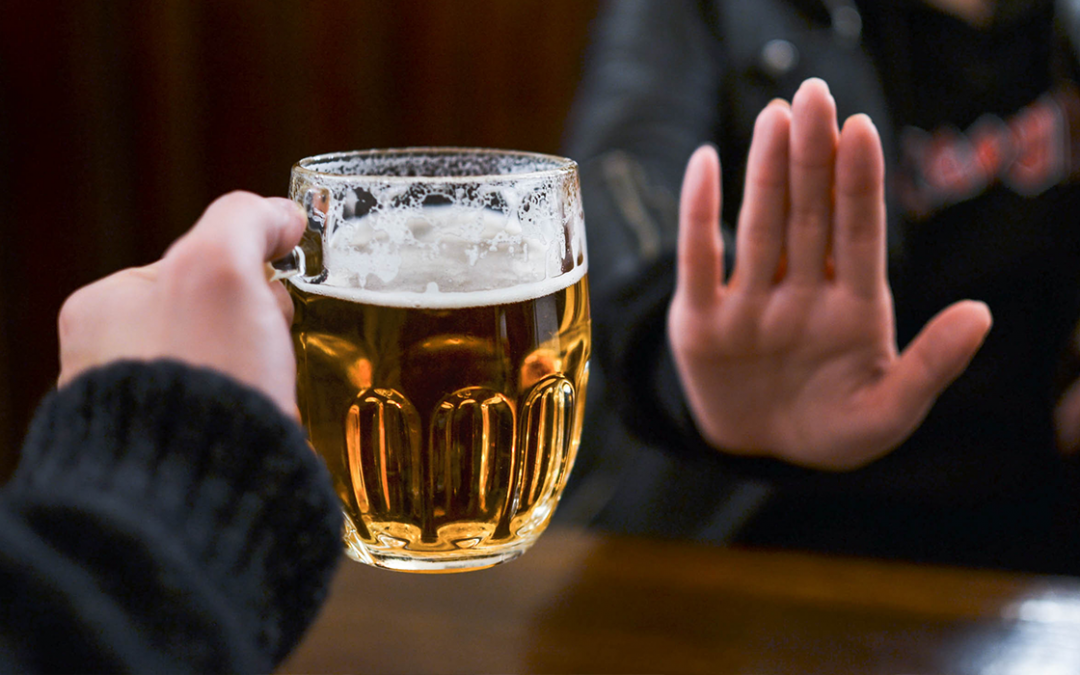Ok. So, we eat salads. We pack in the protein. We drink plenty of water. We workout. We cut down on processed foods and rarely ever have takeaways. It’s all going well. Monday to Thursday, it feels pretty easy to do all the things we think are healthy.
But then the weekend rolls around, and boy, do we deserve a drink. It’s the one thing that gets in the way of us and elite athlete status. Whether it’s a pint in the pub, the casual glasses of wine, or cocktails out with friends, it’s often a big part of our social lives that we just don’t want to give up.
But how exactly does alcohol impact fitness? Does it undo all the hard work done during the week, or can we make room for it and still claim a healthy lifestyle? Understanding the answer to this question comes in seeing what happens if we took a break from it. Giving up the booze can be challenging. But if you’re looking to give it a go, here’s what to expect after two weeks with no drink.
Are you an employer? Hussle now offer flexible, discounted access to our fitness venues as an employee benefit. Elevate employee wellbeing.
The first thing you’ll notice: better sleep
This is one that you might have guessed already. The sleep you get after a few drinks doesn’t feel great. When you wake in the morning, you can tell that it’s not been the most restorative night’s you’ve ever had.
According to recent research, drinking alcohol before bed increases alpha brain waves, usually occurring while you’re awake. This disrupts your sleep. While excessive drinking can make you fall asleep more quickly and sleep deeper, it also messes up the quality of sleep later in the night.
That’s why you end up feeling tired the day after drinking. Two weeks off alcohol will help you reset your sleep cycle, getting you into a regular and undisturbed pattern. You’ll wake more refreshed and alert each day, helping to boost your concentration and performance at work and play.
After a few days: Your gut health might improve (it also might not)
Gut health is all about the balance of good bacteria and bad bacteria. When this equilibrium gets even just a little bit out of whack, you’ll start to know about it. So many of us suffer from some sort of stomach issues. About 20% of the UK population suffer from IBS, an umbrella term used to describe those who experience irritation in the stomach and bowel.
In some people, alcohol triggers irritation in the stomach, making it produce more acid than is needed. Unsurprisingly, this can lead to acid reflux and can also trigger IBS in many people. For that reason, it’s often first on the list of things to exclude when you’re suffering from IBS. Alcohol and bloating tend to go hand in hand.
Large amounts of alcohol increase the number of bad bacteria in the gut and allowing toxins to flow into the bloodstream. This can lead to nasty gastrointestinal issues if kept up over the long term.
However, moderate amounts of alcohol have been shown to have a positive effect on gut health. Red wine, in particular, has been linked to a healthy microbiome. Because alcohol is void of nutrients, it’s all about ensuring you get from elsewhere.
When you decide to give up alcohol, your stomach might thank you. But, if you don’t currently experience any gut health issues, you might not notice a difference.
In about a week: Your skin could look a little clearer
When you stop drinking, you might likely notice a glow as your skin becomes more hydrated. This is because alcohol is a diuretic, so it causes you to urinate more and reabsorb less water, which equals dry-looking skin.
However, remembering to stay hydrated and consuming plenty of water while having a drink can also combat the negative effects.
Alcohol also causes inflammation. That’s the reason some people start looking a little flushed after they’ve had a couple. Although this is usually a temporary effect, it can cause permanent damage over the years. Without regular weekly drinking, you might notice a reduction in how often you go red.
Finally, alcohol increases the size of your pores and makes them dilate. Bigger pores mean an increased chance of blackheads and whiteheads.
If you have troublesome or sensitive skin, you might notice the effects of alcohol on it more than others. This alone is enough or a reason for some to give up the strong stuff.
After about ten days: You might see some fitness progress
There are a couple of ways alcohol can impact your fitness.
The most obvious is that the morning after heavy drinking, a workout is probably the last thing on your mind. You’re dehydrated, and your body is fighting to rid itself of what you just put into it, taking an intense exercise session off the cards. If this keeps happening, you’ll struggle to make the same fitness progress.
Also, there are claims that alcohol can negatively impact your fitness in the longer term by reducing muscle synthesis, impairing muscle growth, and reducing metabolism. These studies looked into hefty levels of alcohol consumption, meaning there’s still plenty of room for fitness gains if you keep an eye on how much you’re having.
As you approach two weeks: You might start to see some weight loss
Alcohol is a double whammy. It’s completely void of nutrients but contains a lot of calories. That means, to obtain all the proper nutrients you need to function healthily, you need to consume food and calories in addition to what you’re drinking. The result of this is a caloric surplus that leads to weight gain if kept up over time.
A pint of beer contains about 180 calories. A large glass of wine contains about 200 calories. Cocktails are an even worse culprit. By removing a few of these from your calorie intake each week, you’ll start to see a drop in body weight in no time.
Alternatively, it just helps to know what’s in what you’re drinking and keeping tabs on how much you’re having. Opting for low sugar alcohols can help. So does drinking in moderation and not to excess.
Another thing to note is that heavy drinking can often lead to overeating in the hours or day following. We’ve all experienced late-night snacking following a few too many drinks. And let’s not even get into a hangover diet. Research has found that this might be because alcohol can increase our sensitivity to food smells. Who knew? When you stop drinking alcohol, the after-effects on your diet will stop too.
By week number two: you’ll have saved a fair bit
This one doesn’t need much explaining. Alcohol isn’t a cheap drink. Especially if you’re into your wine, or dare we say, champagne. Calculating the amount you’d typically spend on bottles each week can be enough to motivate you to stop drinking alcohol.
Suddenly, going sober saves spends on other things you might think are worth it more. We’ll leave that one up to you.
So, there are definitely benefits you might experience after giving up alcohol for two weeks. They might motivate you. They might not. Just two weeks is all it takes to test out the effects.
However, if your Friday night drink makes you happy, then there’s no reason to go tee-total. Drinking in moderation is the advice everyone gives, and with good reason.



